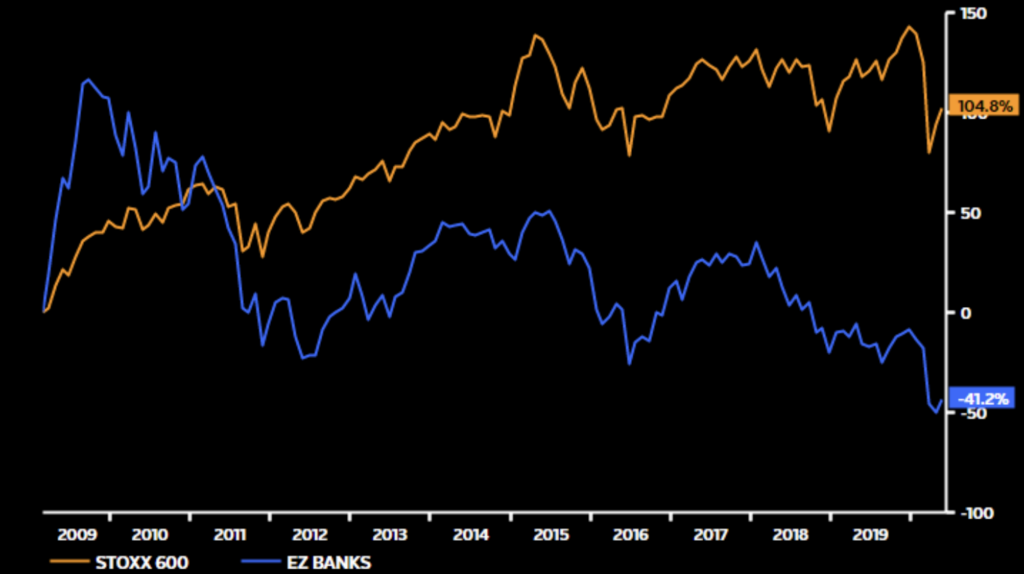To kick off 2022, we asked some of our core team members to share their opinions on the trends and developments that business leaders should have on their map entering the new year. Here’s Adrian Klee, Partner Digital Banking, addressing the shift towards platform-based business models.
As MIT Sloan posted at the beginning last year, platform-based business models are continuously outperforming traditional, linear ones. After comparing 43 publicly listed digital platform firms during the period of 1995 to 2015 with a control sample of 100 non-platform companies in the same category, the authors concluded that “the two samples had roughly the same level of annual revenues (about $4.5 billion). But platform companies achieved their sales with half the number of employees. Moreover, platform companies were twice as profitable, were growing twice as fast, and were more than twice as valuable as their conventional counterparts.” (MIT Sloan Management Review. 2020, February 11). As we recently discussed with Commerzbank’s former Head of API strategy, platform-driven economics will have a profound impact on the financial services industry and pose a huge threat to banks still stuck in the traditional bread and butter of banking, i.e. a balance-sheet heavy business dependent on growing net interest margin. The large majority of banks are still heavily exposed to the traditional model, suffering from a stark decline in return on equity from six to three percent during 2020. Most banks trade at or below book value, as the pandemic put pressure on profitability in addition to the known negative influence of negative interest rates, rising capital and compliance costs as well as new digital competitors.

EU banks missing out on the recent bull market. Source: Refinitiv / Reuters.
While the Bank of England raised interest rates last December and the U.S. Federal Reserve is expected to decide to hike rates in order to fight against inflation, the European Central Bank is said to keep an eye on economic developments, but won’t commit to raising rates this year. In any case, while rising interest rates might yield improvements in net interest margins, these developments don’t have a material impact on the competitiveness of traditional banking intrinsics and business models.
My prediction is that banks that emerge out of this low-growth environment as winners might still be running their traditional balance sheet business, as regulatory and capital requirements expertise is a valuable asset in itself, but now proactively seek to generate demand- or supply-side economies of scale that are now made possible by platform-based business models. On the customer ownership and engagement level, this can be a beyond banking play with a strong focus on digital distribution and a combination of own and 3rd party value-added services that generate fee income. Early signs of such strategies can be seen in the fintech sector. For example, Juni is a digital bank that offers additional services, such as business analytics, on top of its current account, payments and card propositions that are tailored for e-commerce users. On the infrastructure and supply level, some banks will leverage their scale and assets to rent out their banking infrastructure and regulatory expertise as a service to other banks, fintechs and even non-banks. For example, ING is issuing merchant loans via Amazon and Deutsche Bank distributes its consumer loans via API, while fintechs like Solarisbank or Swan go all-in on Banking-as-a-Service by obtaining their own licences and deploying a suite of banking capabilities via APIs. In order to make the most out of digital transformation processes, it will be paramount to leverage new technologies not only for their own sake, but as an enabler to launch new platform-based business models.

About the author


